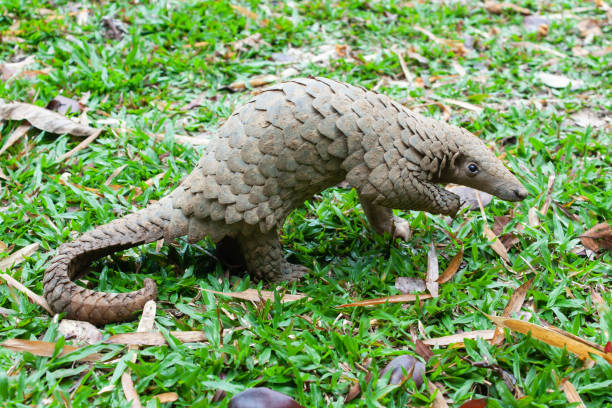Nigeria's Pangolins: Guardians of the Forest
Nigeria, with its diverse landscapes and rich biodiversity, is home to a remarkable creature that often goes unnoticed - the pangolin. Pangolins are enigmatic creatures that play a vital role in maintaining the ecological balance of the Nigerian forests. In this blog post, we will delve into the world of Nigeria's pangolins, exploring their unique characteristics, the threats they face, and the conservation efforts aimed at protecting these fascinating animals.
The Nigerian Pangolin: A Marvel of Adaptation
Pangolins are often referred to as "scaly anteaters" due to their distinctive overlapping scales covering their bodies.
They are among the most ancient mammals on Earth, with a lineage dating back millions of years. Nigeria is home to four species of pangolins: the Black-bellied pangolin (Phataginus tetradactyla), White-bellied pangolin (Phataginus tricuspis), Giant pangolin (Smutsia gigantea), and Temminck's pangolin (Smutsia temminckii). Each species has unique characteristics that make them vital components of Nigeria's ecosystems.
• Role in Ecosystems
Pangolins are insectivorous creatures that primarily feed on ants and termites, helping control insect populations in the forests of Nigeria. This natural pest control service they provide is crucial for maintaining the health of the ecosystem. Their burrowing activities also aerate the soil, facilitating the growth of plants and enhancing overall biodiversity.
• Threats to Nigeria's Pangolins
Despite their ecological importance, pangolins in Nigeria face numerous threats, primarily due to illegal wildlife trade and habitat destruction. Pangolin scales are highly sought after in traditional medicine and are wrongly believed to have medicinal properties. Additionally, their meat is considered a delicacy in some cultures, further driving the demand for their capture.
• Conservation Efforts
Efforts to protect Nigeria's pangolins have gained momentum in recent years. Conservation organizations, in collaboration with government agencies and local communities, are working tirelessly to safeguard these unique creatures. Some key conservation initiatives include:
Awareness Campaigns: Raising awareness about the importance of pangolins in Nigerian ecosystems and the consequences of their illegal trade is crucial. Public education campaigns have been successful in changing perceptions and reducing demand for pangolin products.
Enforcement of Laws: Stricter law enforcement against poaching and the illegal wildlife trade is essential. Nigeria has taken steps to strengthen its wildlife protection laws and increase penalties for pangolin-related crimes.
Habitat Conservation: Protecting and preserving the natural habitats of pangolins is vital. This includes creating and maintaining protected areas and ensuring sustainable land use practices.
Rehabilitation and Release: Organizations are also involved in rehabilitating pangolins confiscated from illegal trade and releasing them back into the wild when possible.
Conclusion
Nigeria's pangolins are extraordinary creatures that contribute significantly to the country's ecosystems. However, they face grave threats from illegal wildlife trade and habitat loss. It is imperative that we continue to raise awareness, enforce laws, and support conservation efforts to ensure the survival of these remarkable animals.
Nigeria's pangolins are not just guardians of the forest; they are a testament to the incredible biodiversity of this beautiful nation and a reminder of our responsibility to protect it for generations to come.
Please remember to share your contribution in the comment section below, and feel free to share this informative and educational content with your friends and family.




.jpeg)
.jpeg)



Thanks for the great job always 👏
ReplyDeleteIt is my pleasure 😁😁😁
Delete